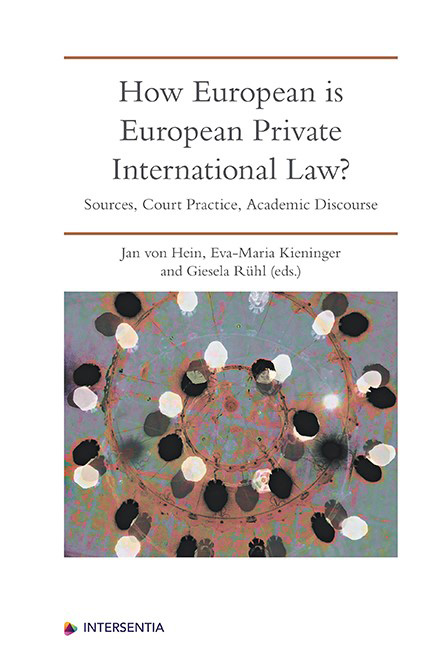The Application of European Private International Law by National Judges: Challenges and Shortcomings
Published online by Cambridge University Press: 22 December 2020
Summary
INTRODUCTION
The role of national judges is crucial for a correct application of European Private International Law, as this field of law is applied, in contrast to substantive private law, almost only by courts. What qualities should a national judge possess to be well prepared to perform this task? Four main challenges may be identified in this respect. First, a judge should have a good knowledge of the law to be applied. Section 2, thus, critically analyses the notion of European Private International Law, which is broadly understood to encompass the provisions on jurisdiction and choice of law as well as the recognition and enforcement of judgments and other areas of judicial cooperation. Secondly, the expectations towards judges are higher today than in Montesquieu's times. In a modern society, judges are no longer merely a mouthpiece of the legislature, ‘la bouche de la loi’. As EU law is always applied in conjunction with national law, a judge should also know the principles of EU law which govern the relationship between EU and national law (section 3). Thirdly, it is clear nowadays that fundamental rights can apply in every field of law, including European Private International Law. A judge should, therefore, also be familiar with the various (national, EU and European Convention on Human Rights (ECHR)) levels of fundamental rights, and display ‘fundamental rights sensitivity’ (section 4). Moreover, recent events in some Member States demonstrate that it is also essential for a national judge to be open to the possibility of verifying the respect of the rule of law in other Member States (section 5).
KNOWLEDGE OF EUROPEAN PRIVATE INTERNATIONAL LAW
The first and most important quality of judges applying European Private International Law that they should have is a good knowledge of this particular field of law. Is it possible for the average judge to fulfil this task? To answer this question, it helps to look at European Private International Law from a distance. If in 200 or 300 years, researchers asked how Private International Law was regulated in the European Union in the 21st century what would they find? Legal provisions alone fill 1040 pages. In fact, in the first 16 years of the 21st century, the EU adopted 23 legal acts relating to judicial cooperation in civil matters – 21 regulations (of which 19 are in force or applied today) and two directives.
- Type
- Chapter
- Information
- How European is European Private International LawSources, Court Practice, Academic Discourse, pp. 185 - 204Publisher: IntersentiaPrint publication year: 2019

